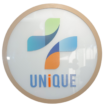WHEN TO SEE A DOCTOR
If you have any one of these symptoms, particularly if they remain unusually long and you do not get better, it’s important to seek immediate medical attention. Catching kidney disease early on can be helpful as this helps slow its course and avoid complications. For individuals with risk factors for kidney disease like diabetes mellitus, hypertension, and a family history of renal malfunction, regular check-ups, including renal function tests, are necessary.

